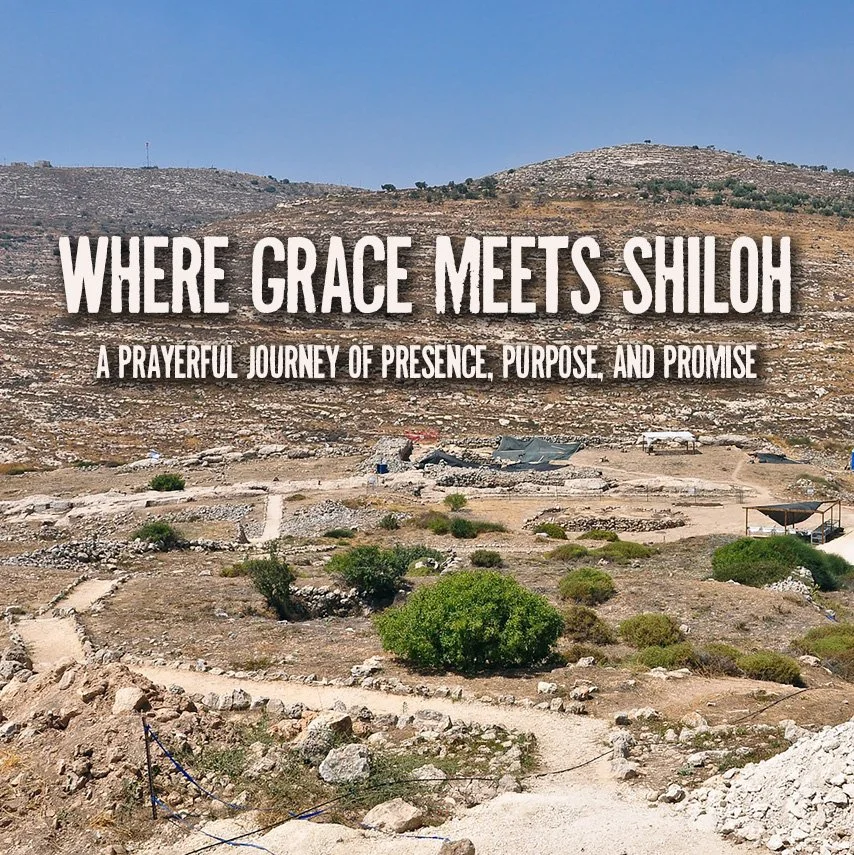A Place of God’s Presence
Where Grace Meets Shiloh: Part 1
August 17, 2025
Joshua 18:1-5, 1 Corinthians 3:16-17
The whole community of the Israelites assembled at Shiloh and set up the meeting tent there. The conquered land lay before them. Among the Israelites, seven tribes were left that had not yet received their legacy. Joshua said to the Israelites, “How long will you avoid going to take over the land that the LORD, the God of your ancestors, has given you?
Joshua 18:1-3 (CEB)
_______________
Names matter… especially in Scripture. Yet we often miss their significance. Many churches are named after Biblical places with little thought for how God showed up in those places or what those stories might reveal about God’s presence among us today.
Shiloh is one such name. As the people of Grace UMC and Shiloh UMC have become one church family in this place called Shiloh, it’s worth asking: What does Shiloh mean for us?
The ancient city of Shiloh sat on a hilltop nearly 20 miles north of Jerusalem and served as Israel’s center during the period of the Judges. It was the first place the Tabernacle was set up as a permanent structure, where it remained for 369 years. God’s people were no longer strangers and wanderers. They were finally home.
But there was a problem. Once they settled in, they got too comfortable. And why wouldn’t they? After years of wandering, Shiloh felt safe. This was a sacred place. They were finally home.
Joshua challenges them, saying, “How long will you avoid going to take over the land that the LORD, the God of your ancestors, has given you?
Let me be clear. Passages like this have been misused in harmful ways to justify conquest, colonialism and oppression of every kind, all in the name or Christ. The church is not called to domination over a community or even a nation. Nevertheless, God may still be asking, “What are you waiting for? How long will you avoid going into the places I have sent you to be a blessing and bear witness to my love?”
Shiloh is a beautiful place to gather for worship, fellowship, study, community, and serving together. But God’s presence doesn’t stay here on the altar all week. We are still being sent out. God is still calling us into the surrounding community, to be a city on a hill and a light in the darkness. We cannot hide from the world in our tabernacle made of stone.
How long will we avoid being God’s people out there, beyond the walls?
God’s presence cannot be contained. Neither should we.
For Further Reflection:
Where might you be avoiding God’s call to go?
What is one concrete step you will take this week to share God’s love with someone beyond these walls?
What comfort or routine might you need to let go of in order to follow God more faithfully?





